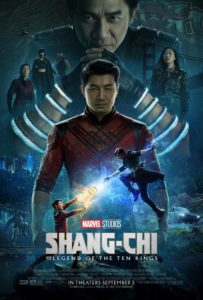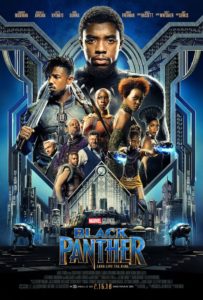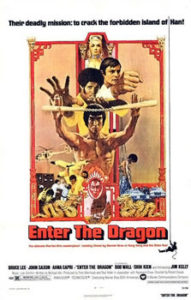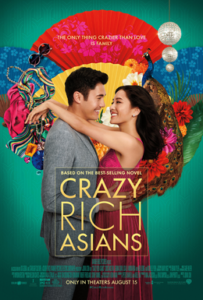At first glance, it might seem like we’re entering a new golden age of Asian American cinema. From teen romcoms like To All the Boys I’ve Loved Before to psychological thrillers like Searching, movie watchers have witnessed a steady rise in Asian American representation across a breadth of genres. A consistent stream of critically acclaimed films — including Crazy Rich Asians in 2018, The Farewell in 2019, and the Oscar-winning Minari and Nomadland in 2020 — has further underscored the fact that Asian heritage actors, directors, and screenwriters deserve a seat at the table.
And at last, Asian Americans are getting what many view as the big prize: a good ol’, superpower-wielding, capes-and-Lycra-sporting superhero film of their own. Shang-Chi and the Legend of the Ten Rings premieres on August 16, with theatrical release throughout the United States on September 3.
It’s the first film in the Marvel Cinematic Universe to feature an Asian heritage lead — but whether it’s the superhero film Asian American audiences deserve is another question to consider.
Big-Budget Hollywood is Making Room for Diversity

Superheroes continue to fascinate the American psyche, and Hollywood has no problem with feeding the machine: superhero films regularly top box office sales, providing a reliable cash cow for studios, theaters, actors, subscription services, and other industry folks alike. Eagerness to get in on a share of the pot explains why Black Widow star Scarlett Johansson recently sued Disney for a breach of contract that allegedly cost her $50 million in bonuses tied to box office performance.
For a while, though, Hollywood has relied on familiar characters like Captain America and Wonder Woman to attract moviegoers — and when those roles are filled by a limited pool of actors, the lack of diversity is stark. Up until 2017, every one of the Marvel Cinematic Universe’s 17 films was headlined by white actors. Even as the industry attempted to reimagine the superhero formula with forays into neo-noir, historical drama, and other genres, the faces that occupied the screen remained the same. That’s troubling on multiple levels. A lack of new roles means a lack of opportunities for new talent to emerge, locking Hollywood into the same pattern of white actors. The absence of people of color from the big screen reinforces the narrative that the most glamorized spheres of society are reserved for whites.
With the record-shattering release of Black Panther in 2018, the playing field has shifted. The first Marvel film to feature an all-Black cast, Black Panther surpassed $1.3 billion in revenue, overtaking Titanic to become the third-highest-grossing U.S. film at the time. Critical reception was just as exuberant, with Black Panther nabbing three Academy Awards and a nomination for Best Picture. The success of the film has buoyed a host of other products, including toys, books, amusement park rides, and other tie-ins to the franchise.
Marvel is hoping to capitalize on the success of Black Panther by continuing to broaden the range of characters it casts in title roles. Enter Shang-Chi — and a new dilemma.

“Kung Fu Fighting” Doesn’t Fight the Model Minority Myth
For many Asian Americans, the chance to bring one of their own into the mainstream — and specifically as a superhero — is particularly exciting. Asian Americans continue to fight a model minority myth, and stereotypes of Asian Americans as passive and meek contribute to the persistent desexualization of men and the fetishization of women. The recent spate of hate crimes revealed just how widespread anti-Asian sentiment remains and how vulnerable many Asian American populations are. An Asian superhero who can beat up criminals thus bears particular significance.

However, scratching a bit deeper raises the question—is surface-level representation enough? As with the character of Black Panther, which debuted in Fantastic Four #52 in 1966, Marvel has dug into its archives to resurrect the character of Shang-Chi, a Chinese superhero whose first appearance was in the comic Special Marvel Edition #15 in 1973.
A troubling fact that is less well-known, however, is that Marvel’s publication of the comic arose from a “kung fu craze” that exotified Asians. Throughout the 1970s and 80s, martial arts films from Hong Kong — typified by their fight scenes, exaggerated special effects, and gratuitous violence — became wildly popular among American audiences. Hollywood cashed in on the movies as a formula for easy success, and multiple franchises were spawned. Special Marvel #15 was born when Steve Englehart heard about the new ABC television show “Kung Fu,” starring David Carradine, from an artist friend.
The craze was unfortunately rooted in orientalist ideals, with audiences looking for entertainment that was “foreign” without being “too Asian.” Indeed, when Bruce Lee first pitched the idea for a martial arts film to Warner Bros. executives, it failed to gain traction, only for Warner Bros. to debut a similar concept — starring a white actor — a year later. And when Englehart pitched the storyline for Special Marvel #15 to then Editor-in-Chief, Roy Thomas, it was mandated that the lead had to be half-white.
It’s questionable that Marvel chose a character with such a contentious history rather than creating a new one altogether. Even the fundamental premise of the Shang-Chi storyline raises questions about what is gained and lost in representation. In the comic, Shang-Chi is the son of Fu Manchu, who is now widely considered a racist caricature. At the behest of his father, Shang-Chi grows up studying kung fu in a secluded fortress in China, until he is one day recruited by a white secret agent to fight villains, including his father.
Western consumption of Asian media has evolved dramatically since the era of martial arts films. Reverting to tropes from the 70s can feel regressive. Additionally, with society embracing more nuanced portrayals of masculinity — within the superhero genre alone, more and more characters are coming out as queer — the sort of punch-the-bad-guy machismo that a martial arts movie courts is also becoming passé. All this leads one to question whether Shang-Chi is the hero Asian-Americans want or simply the hero we’re getting.
Hopes for a New Kind of Asian American Superhero

At this point, there’s no substance to the myth that diversity can’t sell. There’s already precedent for Asian American films to be wildly successful. Crazy Rich Asians , which featured an all-Asian cast, shattered expectations to become the highest-grossing romantic comedy in the U.S. in a decade. Shang-Chi may become another Asian American blockbuster — but it will be a shame if the film relies on outdated tropes to get there.
To its credit, Hollywood is taking steps to modernize the source material. For one, the film replaces Fu Manchu with another supervillain, the Mandarin. Director Destin Daniel Cretton and titular actor Simu Liu are also careful to emphasize that this is a story about identity, not kung fu.
“Before you even know anything about [Shang-Chi’s] past, his upbringing, his martial-arts skills, we wanted people to know that this is an Asian American,” Cretton told Men’s Health.
Liu added: “Kung fu for kung fu’s sake, as an aesthetic or a prop, that’s where it starts to get tropey and dangerous…there’s a reason why when Hong Kong action was introduced to Western audiences, people went bananas for it. Kung fu is, objectively, really cool.”
As with Crazy Rich Asians, many observers are using Shang-Chi as a barometer for the American public’s acceptance of Asian Americans, and that’s a precarious position for the film to be in. A lukewarm reception could spell the end of the Shang-Chi franchise, with fears that it may be many years before another Asian-led superhero film is green-lit for production. For advocates of a more inclusive and equitable Hollywood, that would be a major setback.
But a box office hit — even if not at the level of Black Panther — could pave the way for sequels, spin-offs, and appearances in other films in the Marvel Cinematic Universe. More broadly, the success of a mass-market production like Shang-Chi could trickle down to films in other genres, meaning more Asian American representation across the board.
Ahead of the movie’s release, what else has been done to the plot remains to be seen, and we can hope for a Shang-Chi that exceeds our expectations.

